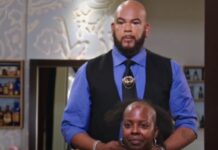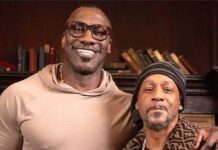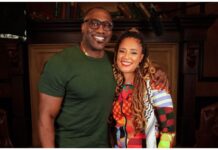[videowaywire video_id=”228664895953D9D1″]
*If Donald Trump meets with North Korean Supreme Leader, Kim Jung Un, he would be the first sitting president to meet with a North Korean leader. But he would not, as he likes to give the impression, be the only US president who has met with North Korean leaders.
Clinton traveled to North Korea once and Carter twice to the country. They both made news when they did, not because they went, but because the North Koreans were receptive to them coming. So, Trump’s seeming backtrack from his saber rattle of North Korea was really less of a backtrack than it first appeared.
His now almost enthusiastic brag that he wants to meet with Un merely exposed Trump’s loud talk about demolishing North Korea as nothing more than the standard Trump bluster. There was a lot of jockeying going on behind the scenes between Trump and the North Koreans to cut a deal on their nuke standoff. In between Trump’s saber rattling, there were hints that the diplomatic door was still wide open. Secretary of State Rex Tillerson, repeatedly made references to some kind of outreach. It was kept purposely vague in part for political reasons. It looked good, sounded good, and played well in the U.S. to play the demon card with North Korea. The other part was Un. He played his part well, with his well-timed, provocative real and threatened nuke missile launches.
The idea all along was to maneuver each side back to the negotiating table to get the best deal possible for the U.S. and the North Koreans. The best deal they want is simple. North Korea wants what it said it wanted all along; namely a guarantee of its security, and the end to its pariah nation status. Trump wanted a political victory notch on his belt to be able to brag that he brought the North Koreans to heel on their nukes and transformed them into just another harmless small nation that poses no challenge to the U.S. Trump, in effect, built on the long, troubled, and contentious history of the U.S.’s relations with North Korea.
The history of U.S. and much of the Western world’s conflict and condemnation of the regime is well known. There’s North Korea’s bloody invasion of the South, the capture of the U.S. ship Pueblo in 1968, and the prolonged hostage standoff, and the nuclear weapons tussle with the U.S.
NEWS YOU MAY HAVE MISSED: BLACK PANTHER PROWLS TO $1B IN JUST 26 DAYS AND BEATS ‘A WRINKLE IN TIME’ AT BOX OFFICE
But what is not as well known is that there was a brief period in the early to mid-1990s when it seemed there would be a breakthrough in U.S. and North Korean relations. The countries held three lengthy negotiating sessions to pound out a weapons control agreement on North Korea’s development of a nuclear arsenal. They came close. The deal called for North Korea to freeze its nuclear weapons development program. The U.S. and other Western nations would provide the country with fuel and a couple of small power plants. Most importantly, the deal was regarded as a first big step toward an eventual normalization of relations between North Korea and the U.S.
In 2003, the talks were expanded to include Russia, China, south Korea, Japan. The talks were commonly called the six party talks. An apparent breakthrough came in 2005 when North Korea agreed to shut down its nuclear weapons program, allow monitors to come into make sure it really had shut it down, and to work to normalize relations with the U.S. The North Koreans in exchange would have gotten food, aid, and assistance in developing its energy resources. It was a good deal for both sides.
The deal fell apart when the U.S. accused North Korea of laundering money through a Macau based bank. That was the excuse that both sides needed to ramp up again their deluge of finger pointing, accusations, and wrangling over spy charges and military threats. It stayed that way for years and it appeared nothing would change. Despite the war mongering rhetoric, the door to a deal still was kept slightly ajar. In 2008, it seemed that a deal could finally be cut. The North Koreans again made concessions—dismantling one nuclear facility and giving the US information about its program. The Bush administration reciprocated by taking North Korea off its state terror list and easing sanctions. Things quickly stalled again when the U.S demanded full access and inspections, and the North Koreans refused. The same bull-headed, dig in the heels, maneuvering by both sides that ensured yet another failure to permanently defuse tensions.
There were more fits and starts in talks with the North Koreans. And each time they bumped up against the two stuck in stone demands from each side, scrap the nuke program totally, and guarantee North Korea’s security.
Trump being Trump says he can now do what four other presidents, Carter, Clinton, Bush and Obama couldn’t do, and that’s cut a deal with North Korea. This would not have been possible if the North Koreans hadn’t kept the door open to that for two decades. That’s long before Trump came on the scene.

Earl Ofari Hutchinson is an author and political analyst. His forthcoming book in mid-April is, The Russia Probe: What Did Trump Know, And When Did He Know It? (Middle Passage Press). He is a weekly co-host of the Al Sharpton Show on Radio One. He is the host of the weekly Hutchinson Report on KPFK 90.7 FM Los Angeles and the Pacifica Network.
We Publish News 24/7. Don’t Miss A Story. Click HERE to SUBSCRIBE to Our Newsletter Now!







